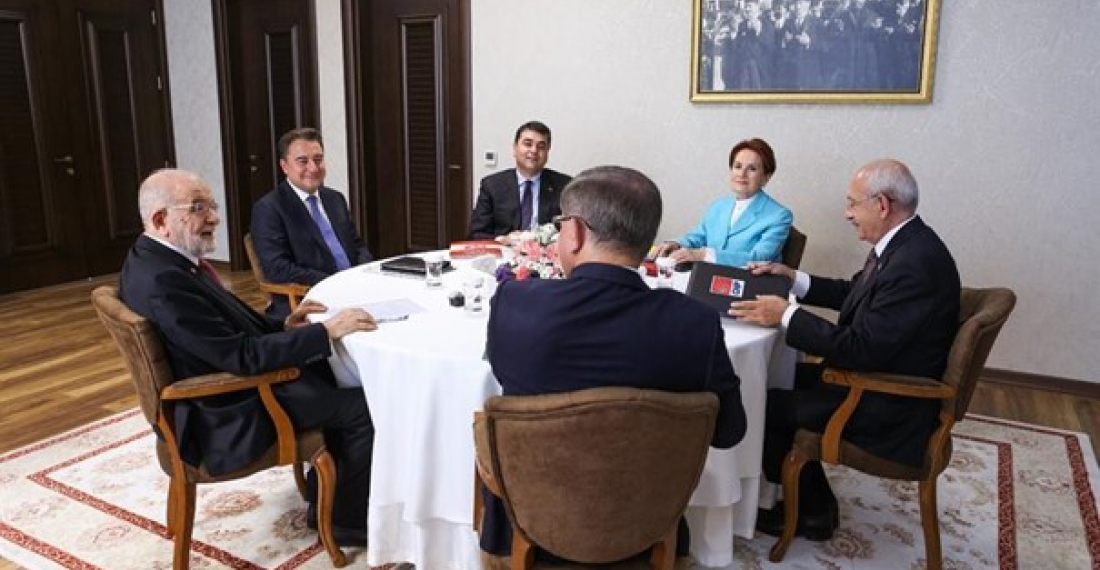The leaders of six opposition parties in Turkey have agreed to run in the next presidential elections, scheduled for next June, with a joint candidate. At their sixth meeting, held over the weekend they did not say who that candidate will be.
“Our people should be assured that our joint candidate will be the president of all and not only the 13th President of the Republic of Turkey and those who vote for the political parties coming together around this table,” read a joint statement released following the meeting of the leaders of the Nation Alliance on Sunday (21 August).
Felicity Party Chairman Temel Karamollaoglu hosted the sixth meeting of the opposition leaders with the participation of Republican People’s Party (CHP) Chairman Kemal Kilicdaroglu, Good (İYİ) Party Chairwoman Meral Aksener, Democracy and Progress Party (DEVA) Chairman Ali Babacan, Future Party Chairman Ahmet Davutoglu and Democrat Party Chairman Gultekin Uysal.
“Our people should be at ease; these dark days are almost over,” it read, stressing the leaders’ determination in walking this road together throughout the election process. “Our struggle and cooperation will endure under our objectives and principles until we save our country from the crises it has been dragged into and until the day each and every citizen can breathe a sigh of relief,” it stated.
Recalling that there is a growing trend of pressure and violence against the oppositional parties, the statement said, adding this will never allow it to shake the determination of the Nation Alliance.
“We are aware of the disappointments that our people have been suffering from for years. We will come out with eligible cadres and efficient policies to relive the people’s disappointments,” it noted.
The opposition parties are expected to hold their next meeting on 2 October.






